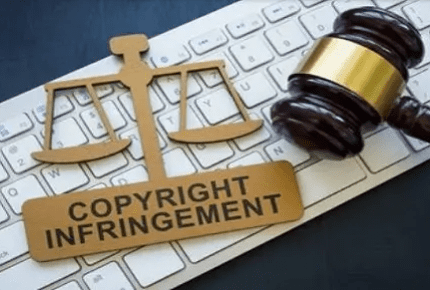

Being accused of charity fraud is a deeply distressing experience. You may be feeling overwhelmed, anxious about your future, and unsure where to turn for help. The uncertainty about what might happen next – whether you could go to prison, what a suspended sentence actually means, and how you can best protect yourself – can be all-consuming. This article is designed to offer you clear, practical guidance and reassurance. We’ll explain what charity fraud involves, what sentences are possible, and what steps you can take to improve your chances of a positive outcome.
What is charity fraud?
Charity fraud occurs when someone dishonestly abuses the trust placed in them by a charity or its donors, usually for personal gain or to benefit someone else. This could mean stealing funds, misusing donations, submitting false expenses, or providing misleading information to obtain grants or funding. The main law covering this offence is the Fraud Act 2006, particularly sections relating to fraud by false representation, failing to disclose information, or abuse of position.
Anyone involved with a charity – whether as a trustee, employee, volunteer, or fundraiser – can be prosecuted if they act dishonestly. Common examples include diverting donations for personal use, inventing fictitious projects to attract funding, or exaggerating costs to pocket the difference. The crucial factor is dishonesty: the intention to deceive for financial benefit or to cause loss to the charity or its beneficiaries.
What are the usual sentences for charity fraud?
The law treats charity fraud seriously, with the maximum sentence under the Fraud Act 2006 being up to 10 years in prison and/or an unlimited fine. However, the actual sentence you might receive depends on the specific details of your case. Courts look at the amount of money involved, the level of planning, the impact on the charity and its beneficiaries, and your own role in the offence.
Not every case leads to a prison sentence. Sentencing options range from fines and community orders to suspended sentences and, in the most serious cases, immediate custody. The court will weigh up all the circumstances before deciding on the most appropriate penalty.
What is a suspended sentence and how does it work?
A suspended sentence is a prison sentence that is not put into effect straight away. Instead, the court “suspends” the sentence for a set period – usually between six months and two years. During this time, you remain in the community, but you must comply with certain conditions, which might include unpaid work, attending rehabilitation programmes, or observing a curfew.
If you stick to the rules and do not commit any further offences during the suspension period, you will not have to serve the prison sentence. However, if you breach the conditions or are convicted of another crime, the court can activate the suspended sentence, meaning you could be sent to prison for the original term.
Can charity fraud result in a suspended sentence?
It is possible to receive a suspended sentence for charity fraud, but it depends on the seriousness of the offence and your personal circumstances. Courts have the discretion to suspend prison sentences of up to two years if they believe that immediate custody is not necessary and that you are likely to benefit from rehabilitation.
A suspended sentence is more likely in cases where the fraud was a one-off, the amount involved was relatively modest, you played a minor role, or you have no previous convictions. For instance, if you made a poor decision under pressure, admitted your actions early, and have shown genuine remorse, the court may consider suspending your sentence.
On the other hand, if the fraud involved a large sum, was carefully planned, or caused significant harm to the charity or its beneficiaries, a suspended sentence becomes less likely. Repeat offending, abuse of a position of trust, or attempts to cover up the wrongdoing are also factors that make immediate custody more probable.
What factors do courts consider when deciding on a suspended sentence for charity fraud?
Courts take a wide range of factors into account when deciding whether to suspend a sentence for charity fraud. These include:
- The seriousness of the offence: How much money was involved? Was the fraud part of a pattern or a single lapse in judgement?
- Number and vulnerability of victims: Did the fraud affect just the charity, or did it also harm beneficiaries, donors, or the wider community?
- Level of planning and sophistication: Was the offence opportunistic, or did it involve careful planning and deception?
- Abuse of trust: Did you hold a position of responsibility within the charity, and did you exploit that trust?
- Impact on the charity: Did the fraud threaten the charity’s ability to operate or damage its reputation?
- Your personal circumstances: The court will consider your age, health, family situation, and any previous good character.
- Remorse and efforts to make amends: Have you accepted responsibility, apologised, or tried to repay the money?
- Risk of reoffending: Are you likely to commit further offences, or have you taken steps to address the underlying causes of your behaviour?
- Willingness to comply with court requirements: Are you prepared to undertake unpaid work, attend rehabilitation, or comply with other conditions?
Every case is different, and the court will look at the whole picture before making a decision.
How serious does the offence have to be for a prison sentence for charity fraud?
Prison sentences are generally reserved for the most serious cases of charity fraud. Aggravating factors that make immediate custody more likely include:
- Repeated or sustained offending over a period of time
- Large sums of money involved, especially where the charity’s work is put at risk
- Multiple victims, particularly if they are vulnerable or reliant on the charity’s services
- Abuse of a position of trust, such as a trustee or senior employee
- Attempts to conceal the offence or destroy evidence
- Previous convictions for similar offences
Mitigating factors, on the other hand, can persuade the court to consider alternatives to custody. These might include:
- The offence was a one-off, perhaps committed under personal or financial pressure
- The amount involved was relatively small
- You have shown genuine remorse and made efforts to put things right
- You have significant caring responsibilities or other personal difficulties
- Mental health issues or other vulnerabilities played a part in your actions
The court will always consider whether a sentence can be suspended, especially if there is a realistic prospect of rehabilitation and immediate custody is not necessary to protect the public or mark the seriousness of the offence.
What can I do to improve my chances of getting a suspended sentence for charity fraud?
If you are facing an allegation of charity fraud, there are practical steps you can take to improve your chances of receiving a suspended sentence:
- Get expert legal advice as soon as possible. A specialist solicitor can guide you through the process, help you prepare your case, and represent you in court.
- Demonstrate genuine remorse. Accepting responsibility, making early admissions, and expressing sincere regret can all help your case.
- Make amends where you can. Offering to repay the money or otherwise compensate the charity shows you are taking responsibility for your actions.
- Cooperate fully with the investigation and court proceedings. This includes attending all hearings and providing any information requested.
- Gather evidence of your positive character. References from employers, colleagues, or community members can help show the court that your actions were out of character.
- Address any underlying issues. If your actions were linked to addiction, mental health problems, or financial difficulties, seeking help and support can demonstrate your commitment to change.
- Ensure your case is well-prepared and presented. A strong legal team can make a significant difference to the outcome.
Ultimately, while there is no certainty of receiving a suspended sentence, the actions you take in response to a charity fraud allegation can be highly influential. By demonstrating genuine remorse, actively seeking to make amends, cooperating fully with the legal process, and addressing the root causes of your actions, you present the court with a comprehensive picture of your character and your commitment to rehabilitation. A proactive and transparent approach, guided by expert legal representation, is your most effective strategy in working towards the most constructive and positive resolution possible in a serious situation.
Where to get more help
Facing a charge of charity fraud can feel isolating and overwhelming, but you do not have to face it alone. Having a solicitor on side can make all the difference, not least because you will be able to better understand your options and work towards the best possible outcome. The team at Stuart Miller Solicitors has extensive experience in defending charity fraud cases and is here to offer you clear, practical advice and robust representation. Contact us for a no obligation transaction.
OUR COMMITMENTS TO YOU:
-
Responsive
A legal expert will consult you within 24 hours of making an enquiry.
-
Empathetic
We will always treat you with trust, understanding and respect.
-
Specialised
Your case will be handled by an expert who specialises in your type of offence.
-
Proactive
We will take early action to end proceedings as soon as it is practically and legally possible to do so.
-
Engaged
You will be kept updated on your case at all times. We will provide a named contact available to answer your questions.
-
Caring
We understand this is a difficult and stressful time for you and your family. Our team will support you every step of the way.
-
Tenacious
We will never give up on your case. We fight tirelessly to get you the best possible outcome.

